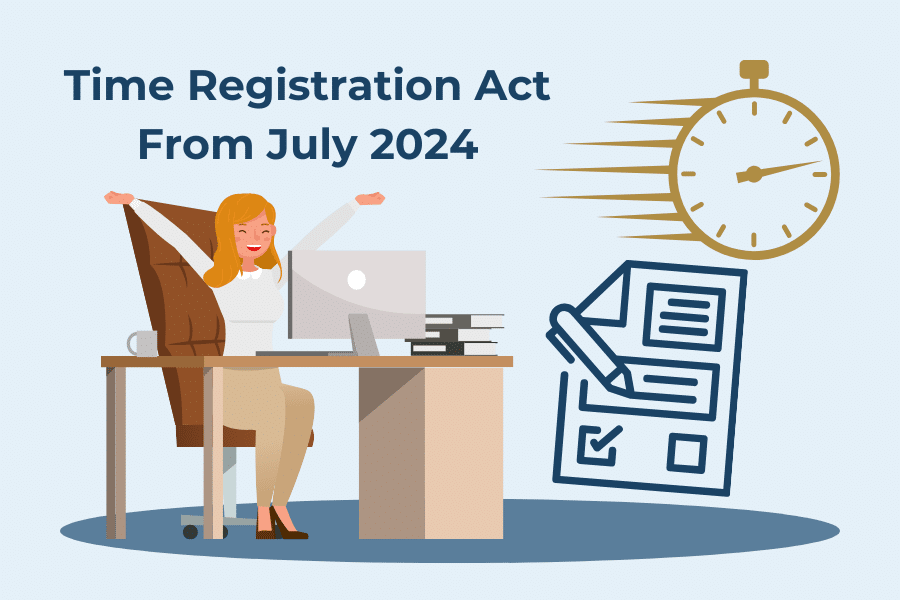The Time Registration Act obliges Danish employers to electronically track employees’ daily working hours. This has implications for all Danish employers. The purpose of the Act is to facilitate the tracking of workers’ time to ensure compliance with working hours and rest periods. The employee is responsible for using a time registration system that is “objective, reliable, and accessible”, which entails a statutory obligation to document the registration to ensure transparency towards the authorities. Employers must retain registered information for 5 years after the end of the weekly period, and the employee must have access to this information during the employment relationship.
EU labour directive
With the Time Registration Act, Denmark ensures compliance with the EU’s work directive on companies’ daily time recording. This includes the rule for a maximum working time of 48 hours per week on average over 4 months, and the requirement for 11 consecutive hours of rest within 24 hours. A violation of these rules can trigger penalties in the form of compensations of DKK 25-50,000 to the employer / employee.
There is an upcoming rule in the EU’s Labour Directive that companies in the member states must have a system to record working hours on an accurate and reliable basis. In addition, the system must be accessible for control efforts by the authorities.
As a member state of the EU, Denmark is therefore obliged to implement these rules in Danish legislation, as a result of the EU judgment in 2019.
Exceptions to
mandatory time recording
The main rule is that the time tracking requirement applies to all employees, except for “self-organisers”. The exception includes the requirement to track the daily working time, the maximum weekly working time of 48 hours, rest time, and the night work rules. Self-organisers are employees who have a special relationship with their working time that cannot be measured, determined in advance, or when the employee himself decides his working hours.
Employer’s Duty
It is the employer’s duty to track the daily working hours for each employee. Thereby, the employer must have an overview of working hours, flex, holidays, and absences.
It is the employer’s responsibility that the employees do not work more than 48 hours per week on average within a four-month period.
It is the employer’s responsibility that the employees get 11 consecutive hours of rest outside work within 24 hours. As a result, the employees may not work more than 13 hours in a row.
It is the employer’s duty to ensure compliance with the employment certificates and implementation of the new law. In doing so, the employer must ensure that “self-organisers” are written in the contract, so that these types of employees can be exempted from the time registration rules. Thereby, it is also clear to specify the requirement for time recording on all employment certificates, as this may have consequences in case of violation (potential compensation to the employee of DKK 25-50,000).
It is recommended that the employer starts with the mentioned requirements for time registration, as these rules come into force on 1 July 2024.








